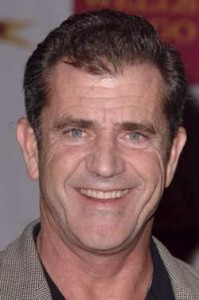Guest Post by David Linton, Marymount Manhattan College
An earlier re: Cycling post about a clever viral marketing strategy that exploited the notion of male cramps reminded me of some other ways that men have tried to appropriate aspects of the menstrual mythos for their own interests.
Gender jealousy was spelled out by Freud with his concept of “penis envy” and rebutted by Karen Horney who claimed that “womb envy” was an even stronger psychosocial phenomenon that expressed male anxiety at their inability to give birth. Then the term “menstrual envy” came along in an attempt to explain a variety of male attractions to behaviors including sports and war.
Recently there has been a rise in use of the term “male menopause,” probably a reflection of demographic shifts and concern for the well being of the aging American male. An early advocate of this syndrome was Jed Diamond whose 1998 book, Male Menopause, claims that the purpose of the hypothesized phenomenon (also called viropause or andropause) “is to signal the end of First Adulthood and prepare men for Second Adulthood.”
Another web site identifies eight “symptoms of male menopause,” but reading the list reveals that what is now being called male menopause used to be called simply “getting old,” as it includes items such as declining sex drive, forgetfulness, weight gain, and irritability.
 The Fox news network has also gotten behind the idea with testimony from the “Foxsexpert,” Yvonne Fulbright, who sports a sexy pose to support her title under a headline that reads, “NOT SUCH A MYTH: MALE MENOPAUSE” The Sexpert goes on to state, “He’s feeling hot flashes — and they have nothing to do with desire. Like a woman, his body is letting him know it’s going through “male menopause.” Far from being a myth, this hotly debated experience really does exist. Yet few people know about the condition more formally known as andropause.”
The Fox news network has also gotten behind the idea with testimony from the “Foxsexpert,” Yvonne Fulbright, who sports a sexy pose to support her title under a headline that reads, “NOT SUCH A MYTH: MALE MENOPAUSE” The Sexpert goes on to state, “He’s feeling hot flashes — and they have nothing to do with desire. Like a woman, his body is letting him know it’s going through “male menopause.” Far from being a myth, this hotly debated experience really does exist. Yet few people know about the condition more formally known as andropause.”
Actually, once the article turns its attention to the medical circumstances surrounding andropause, it raises some very important issues that men would be well advised to know about.
Similarly, a 2007 CBS News, once it gets past some jokey repartee between Dr. Holly Phillips and Chris Wragge, goes on to provide some valuable information, once again utilizing the public’s greater familiarity with women’s menstrual cycle.
Mel Gibson gets into the act in a site called News Blaze where he describes changes in his acting style by claiming, “It’s the male menopause, that’s what it is.” He doesn’t go on to say anything about whether his public expressions of bigotry are related to his andropause.
Finally, it’s surprising how many ways the male menopause idea can get spun. The free spirited character played by Meryl Streep in Mamma Mia rejects the overtures from her old lover (played by Pierce Brosnan) with the line, “I don’t want to have some menopausal middle aged man run my life.”



The interesting part of this for me is that male menopause is always defined negatively, in that it is an attempt to explain away some things that middle-aged men are going through, and some otherwise “unexplainable” symptoms. And bodily symptoms of any kind are ALWAYS negative, in the way that they are portrayed, as we already know (you never hear about the “signs” of male menopause, only the symptoms). Ultimately, not only does this take the focus away from women’s menopause but it also denies all of the feminist work on menopause and, further, women’s own perspectives about how positive menopause can be (or women’s indifference to the process). Menopause is once again negative and defined only through symptoms, and women’s normal processes again become abnormal because men have these “awful” symptoms too…
I heard that he was quite keen do a Home and Away appearence! Lol. Sounds a bit dodgy to me. There’s a bit of me that sort of wishes this is true lol.